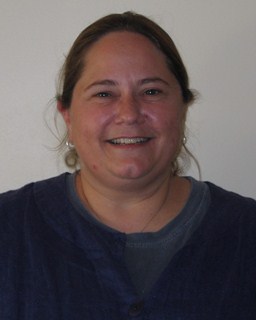Guest Speaker: A Technological Tool by Any Name
28 July 2011By Margaret Checchi, M.Ed.
 Successful transitioning from hands-on learning to hybridized classes depends on faculty who can create dynamic and engaging course content delivered with students’ best interests in mind.
Successful transitioning from hands-on learning to hybridized classes depends on faculty who can create dynamic and engaging course content delivered with students’ best interests in mind.
A decade ago, it was unheard of to serve foams and essences; it was unrealistic to manipulate food at the very heart of its molecular structure. What seemed unrealistic and impossible then is becoming almost mainstream now. So it is with education.
At New England Culinary Institute, our students slurp coffee desperately in the cold, black dark of the pre-dawn chill, hunching over pocket notebooks filled with ratios, temperatures, cook times and formulas as they create the day’s menus and generate mise en place lists. They are like the students before them and the ones before them, since Socrates held lessons in the olive grove. With luck, Chef will come into the kitchen having had a good night’s sleep and the students will get through the day without feeling completely inadequate.
The tactile immersion of hands in the warm ooze of dough or the deft lifting of flesh from bone in a meat-fabrication class gratifies their burgeoning passions. Sitting in lecture? Not so much. Our full-day, hands-on kitchen labs are overwhelming enough to the students without adding in hours and hours of lecture material. But isn’t that “how it’s done?” Doesn’t going to school mean sitting in class?
Not anymore. In the last several years, education has been transforming all around us. In an effort to support the next generation of digital natives and culinary impresarios, as well as to feed the need to stay current with educational delivery, culinary instructors at our school have developed the skills to create and deliver material online. It must be recognized that this transition from hands-on ONLY to hybridized online delivery via a learning platform cannot (and must not) replace hands-on learning with strictly online components. We can enhance, we can elaborate, and we can absolutely deepen the understanding of the material, but online programs must reflect the reality that many beginners learn best by performing tasks in conjunction with the learning components. The beauty of today’s technology is that we no longer have to share the same physical presence for that to happen! The advent of Web conferencing, voice sharing, digital video and other technological wonders allows students to share much of what they are doing from their own venue.
For this “new” teaching style to be effective, it is imperative to isolate and address those areas in which instructors need additional training in today’s teaching theory, technology and digital media. Instructors who receive focused training will enhance their ability to create more dynamic and engaging courses for culinary students. The implementation of new and better trainings will allow instructors to fully embrace the available technologies in their courses.
The key to a successful transition from hands-on learning to hybridized or wholly online classes is a faculty who have internalized how to create dynamic and engaging course content delivered with the students’ best interests in mind. Like the C02 cartridge, the liquid-nitrogen freezer and the distiller, technological tools are just that, tools. The keys to success are, as always, the understanding that student understanding must always come first, the willingness to open up to new possibilities and the courage to embrace change!
Margaret Checchi, M.Ed., is a chef-instructor and the distance-education coordinator at New England Culinary Institute in Montpelier, Vt.
Additional Info
- CAFÉ Talks Podcast Lesson Plan: 8
